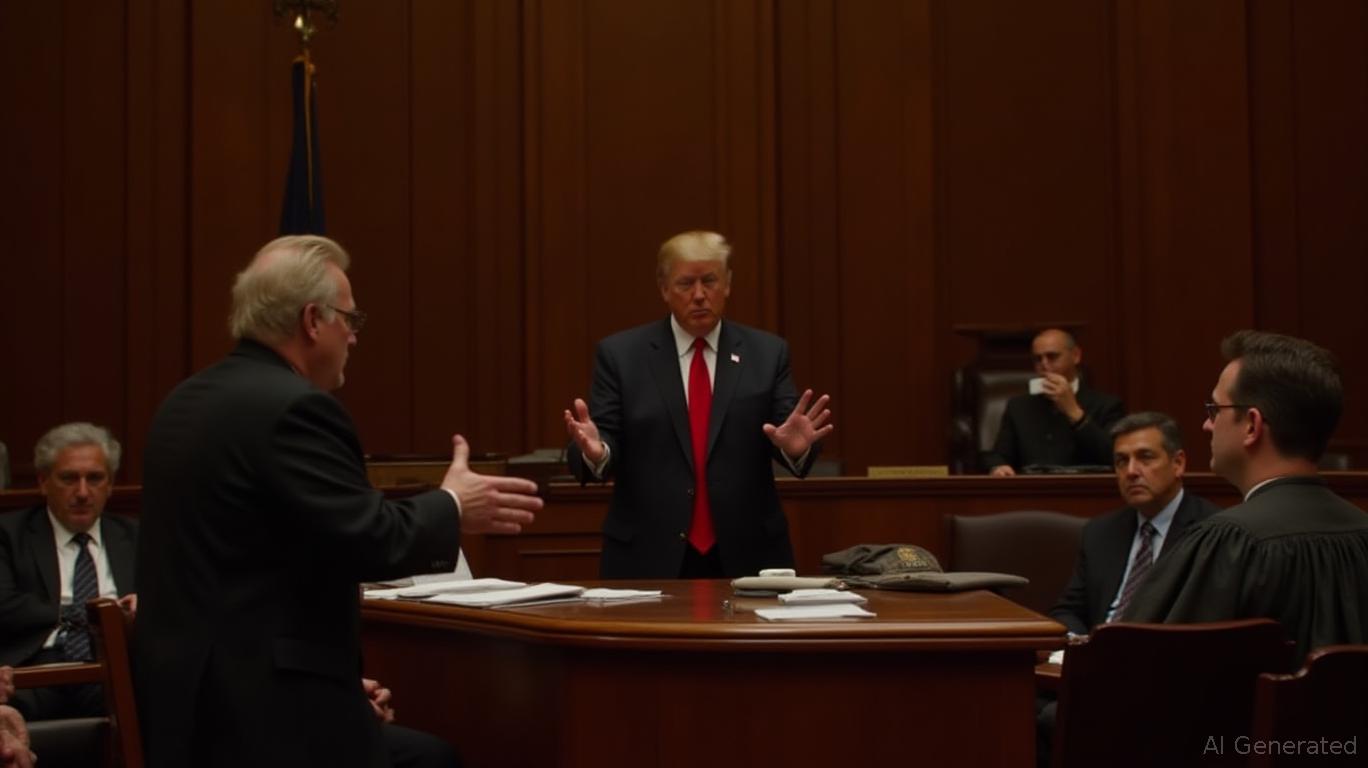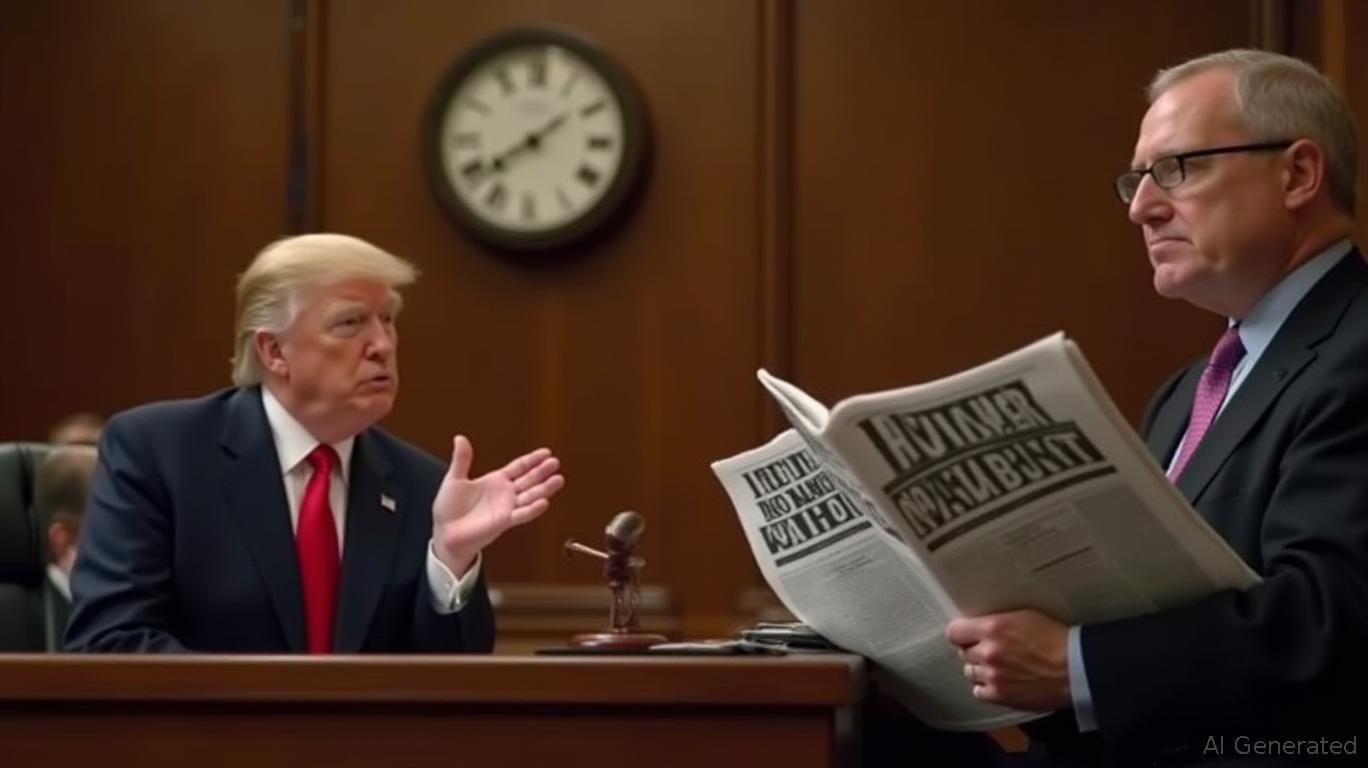Supreme Court Decision on Tariffs May Reshape Limits of Presidential Authority
- U.S. Supreme Court will rule on Trump's IEEPA-based tariffs, testing presidential power limits under constitutional law. - Lower courts invalidated tariffs, arguing Congress retains tariff authority under Article I despite IEEPA's emergency powers. - "Major questions doctrine" could limit executive overreach, but conservative justices may split on emergency powers interpretation. - Trump threatens retaliation by reimposing tariffs via alternative statutes if IEEPA case fails, complicating but not halting
The Supreme Court is on the verge of issuing a significant decision regarding President Donald Trump’s broad tariff initiatives, sparking debate among legal scholars and political commentators about whether the executive branch has exceeded its constitutional limits. This case, which challenges the extent of presidential authority under the International Emergency Economic Powers Act (IEEPA), has attracted intense examination from both progressive and conservative legal minds, who caution that the verdict could alter the distribution of power between Congress and the presidency, according to
The central issue is Trump’s claim that he can independently levy tariffs on almost all U.S. trade partners using IEEPA, a 1977 statute intended for national emergencies. He has invoked this law to justify tariffs on countries like China, Mexico, and Canada, citing concerns such as fentanyl trafficking and trade deficits, and later broadened the policy globally with “reciprocal” tariffs ranging from 10% to 50%, as

This legal confrontation has brought renewed focus to the so-called “major questions doctrine,” a principle recently championed by the Court’s conservative members. This doctrine asserts that Congress must clearly authorize government actions with far-reaching economic or political effects, a point highlighted in the New York Magazine article. In 2023, the Court relied on this doctrine to overturn President Biden’s student loan forgiveness plan, and in 2022, it limited the EPA’s regulatory authority over climate policy. Legal experts believe the same reasoning could be applied to Trump’s tariffs, potentially bringing together justices from both sides to curb executive overreach; though some conservatives may hesitate, given their history of supporting broad emergency powers.
Trump has reaffirmed his stance, pledging to attend the November 5 oral arguments—an unprecedented move for a sitting president—and describing the case as “one of the most important in the history of our country,” Barron's reported. His administration contends that overturning the tariffs would expose the U.S. to trade reprisals and jeopardize national security, as
Should the Court rule against Trump, the administration has backup strategies. Officials have indicated they could reinstate tariffs using other laws, such as the Trade Act of 1974, though this would be slower and more limited in scope, as
The political stakes are also high. A loss could spare the U.S. economy from an estimated $3 trillion in tariffs over the next ten years, according to the Congressional Budget Office, while giving Trump an opportunity to portray the Court as a partisan barrier to his policies, as discussed in the New York Magazine article. On the other hand, a victory would empower future presidents to use emergency declarations for sweeping unilateral actions, diminishing congressional oversight, according to
As the Supreme Court weighs its decision, this case has become a critical test of the judiciary’s dedication to constitutional limits. With justices like Chief Justice John Roberts and Amy Coney Barrett potentially playing decisive roles, the outcome will not only influence Trump’s potential second term but also set a long-term precedent for presidential authority, as argued in the New York Magazine article.
Disclaimer: The content of this article solely reflects the author's opinion and does not represent the platform in any capacity. This article is not intended to serve as a reference for making investment decisions.
You may also like
Solana’s Vibhu Challenges Ripple to a Live Debate Over On-Chain Data and Real Network Adoption

Ethereum Monthly Stablecoin Volume Hits $2.82 Trillion in October, Setting New Record

Courts Mandate Trump to Provide SNAP Funding, Preventing the Use of Hunger as a Tool
- Federal judges in Rhode Island and Massachusetts ordered the Trump administration to use emergency funds to continue SNAP benefits during the government shutdown, preventing aid suspension for 42 million Americans. - The administration claimed insufficient funds, but plaintiffs highlighted $28.25 billion in available reserves, challenging the legality of halting aid. - Courts deemed the suspension "unlawful," emphasizing the government's duty to use existing tools, while the USDA plans to appeal, risking

Bitcoin Down 6% as Ethereum, Solana, Dogecoin, and Cardano Suffer Heavy Losses
